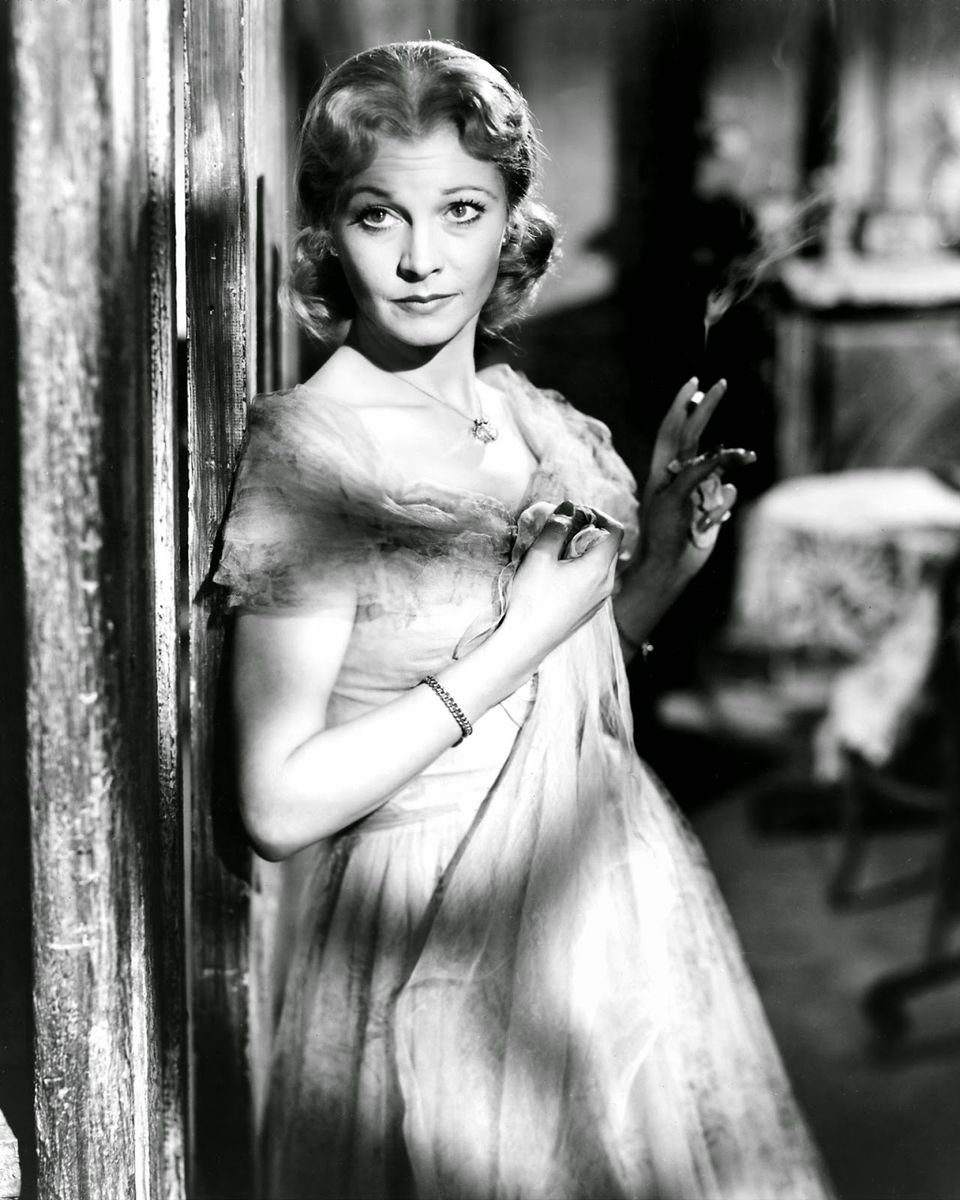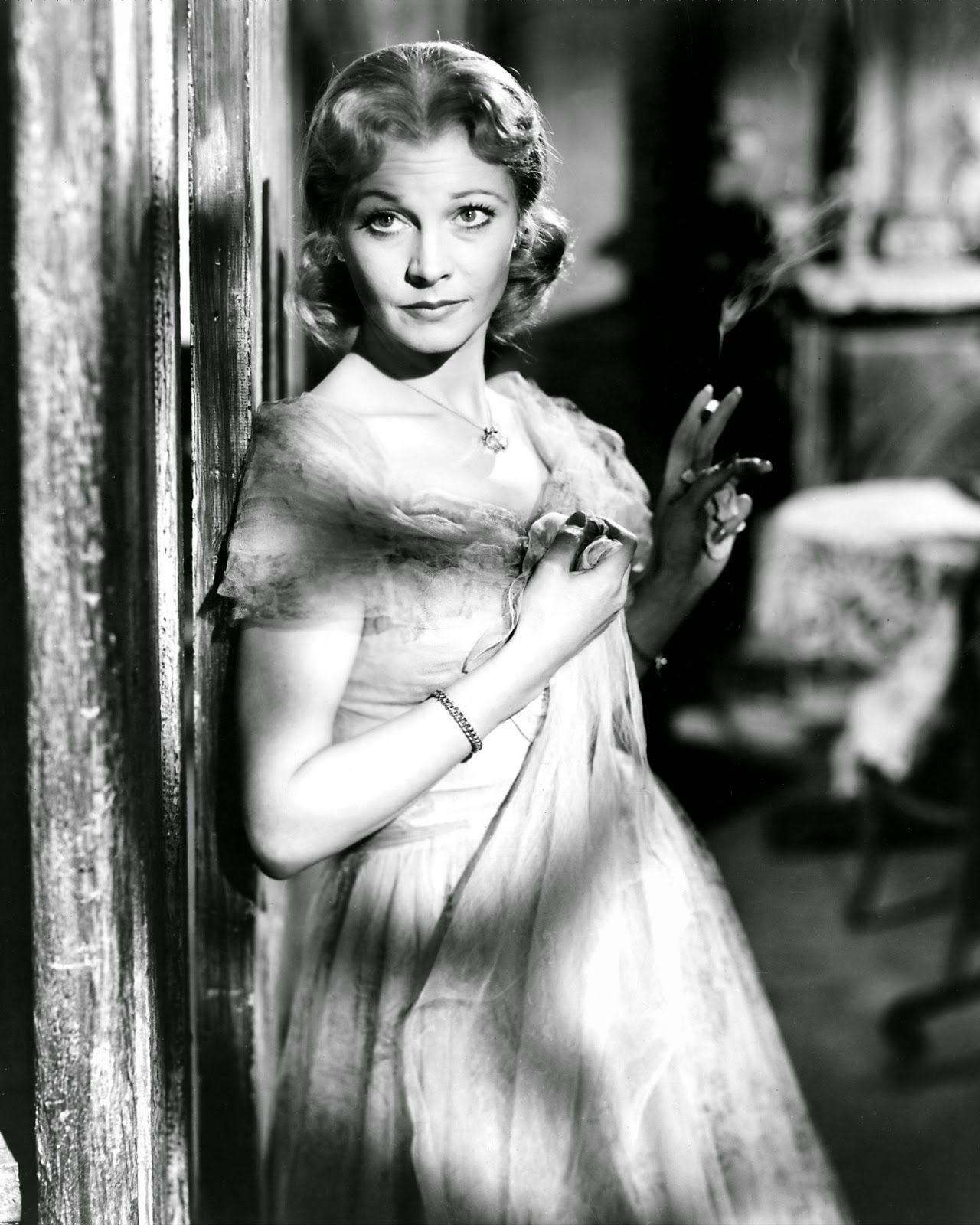Blanche duBois is a weak, vulnerable and, ultimately, passive victim - by Camille Saunders


To agree with this comment is to wholly misjudge Williams’ intentions when writing the character of Blanche DuBois, and instead perpetuates the cruel impassivity and total lack of empathy so emblematic of the developing society about which he writes: whether this society is restrictive New Orleans, the patriarchy, America, or humanity. Blanche shows very little weakness throughout the play, but rather is broken by her past, she is vulnerable only in so far as her situation is menacing, and Blanche is at no point passive; she clings to what she can control as the rest of her autonomy is stripped by her surroundings and, ultimately, the only thing she succumbs to is her inescapable fate.
Blanche is not weak by nature, but rather she has been irreversibly damaged. For example, the constant reminders of her inescapable demise can be seen through the use of plastic theatre. The mournful blue piano features in almost every scene of the play, acting as a reminder that in the same way that blues music is inextricably linked to its roots in slavery, she is shackled to her past. The motif of the “rising polka” that is cited in many of the scenes also acts to characterise her madness to the audience, as she is unable to escape the music inside her head; the frenzied, accelerating dance is reflective of her all-consuming self-blame for Allan’s suicide that shows us Blanche is neither irrational nor hysterical, but surviving a constant battle, both internally and externally which she can fundamentally never win. Furthermore, her predisposed disadvantage is shown through the formalist theory of diction in several ways. Allusions surrounding Blanche show that almost all the audience sees of her is a façade, which only suggests she is compensating for insecurity and trauma, not weakness. For example, Blanche tells Stella she has had to “put on the soft colours of butterfly wings”. The colour imagery of “soft colours” suggests that she has to blend in with the background to be safe. This highlights that she is not weak, but rather doing what it takes to survive, even if this involves perpetuating patriarchal expectations and subduing her own personality, which is a sacrifice closer to strength than it is for weakness. Furthermore, butterflies are delicate and live only for a short period of time, symbolic of her fragile psyche and her fate. Perhaps the fact that, like a butterfly, she was expected to die younger, for example during the disease that killed most of her family, and that therefore her desperation to cling to her youth is a way to compensate for her being “incongruous to her surroundings”, placing her not just aesthetically, but anachronistically in the role of the “outsider” in the Southern Gothic genre. Moreover, fundamentally the strongest allusion that suggests Blanche is not weak but ill-fated is the fact that she is travelling to “Elysian Fields”, the resting place for Ancient Greek heroes; not only does this suggest she is fated from the start to meet her demise, but also suggests that the afterlife, however hypothetical, is the only place in which she will be recognised for her toil and labours and seen as a hero for enduring what she has, rather than a villain for the coping mechanisms on which she relies.
Blanche is only vulnerable due to the malice of her surroundings, and her desperation to trust people with what is left of her life ultimately leads her to be exploited by all the characters in the play. Stella can reassure herself that she is doing what she can, but ultimately does not save her; Stanley can use her to emphasise his own masculinity to the point of raping her to fuel his power complex; and Mitch can find the love he seeks, while finally rejecting Blanche to prove to himself and the others that he can take his life in his own hands, rather than needing the “sugar-tit” the men laugh about in Scene 2. From this epithet onwards, we know that Blanche is in a desperate situation and vulnerable to abuses of power. Hart Crane writes in the play’s epigraph “to chase the visionary company of love”, suggesting that Blanche, understandably, seeks comfort in the “company” of a basic emotion; this reiterates the idea that Blanche can rely on abstract concepts such as “love”, “desire” and her own PTSD more than she can rely on any of the characters in the play, who ultimately all desert her. Furthermore, Crane refers to “each desperate choice”, already imposing the semantic field of carnal desires and last resort options through the adjective “desperate”. Blanche’s vulnerability is a recurring theme throughout “A Streetcar Named Desire”, shown by her stark juxtaposition with the other characters. For example, at the poker game in Scene 2, the men are introduced by the “raw colours of childhood spectrum” that they wear. The colour imagery here eludes to bold primary colours, which immediately create antithesis between them and Blanche, as even visually they dominate her. The carnal adjective “raw” also connotes mercilessness and incivility, further emphasised by the chronological reference to “childhood”, a time during which social standards and appearance, both things which define Blanche, have yet to be developed.
Finally, the trope of light is inextricable from Blanche and her philosophy. While we see her nervously repeat a tricolon of interrogatives when Mitch offers to switch on the light, with “light? Which light? What for?”, this one desire to keep herself in the shadow is perpetually overridden. For example, “the headlight of the locomotive glares” when she hugs Mitch, showing that even though she thinks she has finally achieved her goal of being able to “rest”, the outside world is still prying on her privacy and honing in on her every flaw. The locomotive is a symbol, much like the streetcar, of Blanche’s inability to settle in one place or with one person: she is effectively an emotional refugee, constantly fleeing psychological wreckage.
Finally, Blanche is far from being passive. She continually struggles against herself, others and society to maintain a hold on the one thing over which she has control: her image; though this, too, is eventually sequestered from her grasp. For example, Blanche attempts to control her own life, as shown through the trope of paper throughout the play; the “paper moon”, “cardboard sea”, “paper doll” and “paper lantern” all reflect Blanche’s desire to be have a future, or at least present, that is mouldable to her will, that she can build up and destroy as she needs. Tragically, the only aspect of paper that Blanche receives from her situation is that it all dissolves irretrievably. The “moon”, symbolic of hope, is taken from her when she is taken to a lunatic asylum at the end of the play. The “sea” of memories she has are never appeased, and her ghosts remain with her after everyone else has abandoned her. Her roll as a “doll” is only perpetuated so that she can be commodified by Stanley. Even the “lantern” of her façade is ripped away by Mitch and Stanley to reveal her privacy and intimacy to the outside world, making even her own history no longer hers. Legally, Blanche’s body is the only thing she owns at this point, and while Stanley violates this when the implication is that he rapes her, she still tries to maintain as much control over it as she can. Obsessively cleansing herself, the motif of “she’s bathing” and “I’m going to take a hot bath” can suggest both that she is trying to clean herself of her promiscuous and sinful past, and that she has to take obsessively good care of herself because nobody else will, showing an extravagant self-sufficiency. This juxtaposes brutally ironically with her last line, “I have always depended on the kindness of strangers”. She tries to manipulate her image by faking emotions throughout the play. For example, she has a “tight, artificial smile” when Mitch does not appear for her birthday, suggesting that while Blanche already does not appear mentally well to the audience, we question how much worse she is below the surface. The cosmetic adjective “artificial”, perpetuates the ongoing juxtaposition of realism and surrealism, both in the plastic theatre of the play and the characters’ actions themselves. Perhaps the most striking example of Blanche’s forced composure is after Stanley gives her the “birthday remembrance” of a one-way ticket back to Laurel, where we hear her “coughing and retching” off stage. This scatological language immediately makes the audience inherently uncomfortable, and the fact that Stanley is seemingly immune to his manipulative cruelty having elicited a physical reaction in his sister-in-law, seeks to emphasise his sub-human levels of empathy. Despite this heart-wrenching grief and horror that tears through Blanche’s psyche into her physical form, she still gets up, comes out of the bathroom, and quite literally “faces the music” of the polka.
This emotional strength is one that the psychologically privileged in the play, such as Stanley, could never deign imagine, and to label Blanche as “weak” or “passive” is to undermine her daily struggle to forgive herself for Allan’s suicide, to forget the death that surrounded her childhood, and to find the opportunity to “rest” that she craves. As Hart Crane suggests in the epithet, “to chase the visionary company of love” is all humanity can seek to achieve, and yet Blanche is never given the honour: Allan can never return her love, Stella’s love cannot protect her from brutality, and Mitch takes his away to protect his own image. Fundamentally, Blanche overcomes not only the American Dream's desire to crush her entire class and the death and disease that takes her family, but also the disgrace of prostituting herself to local soldiers and customers of the Hotel Flamingo. Therefore, to suggest that Blanche, and all the women that she represents, are “weak” is to redefine unattainably the concept of “strength”.
